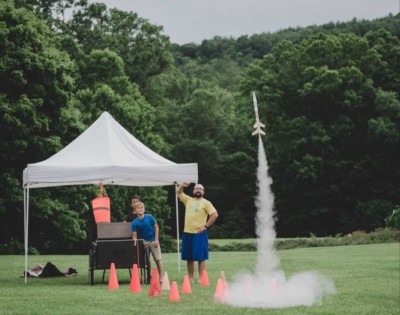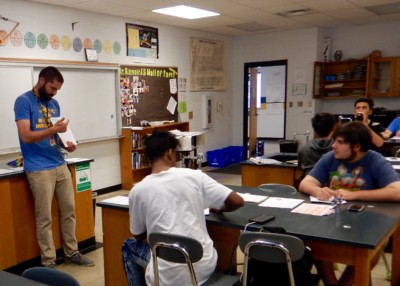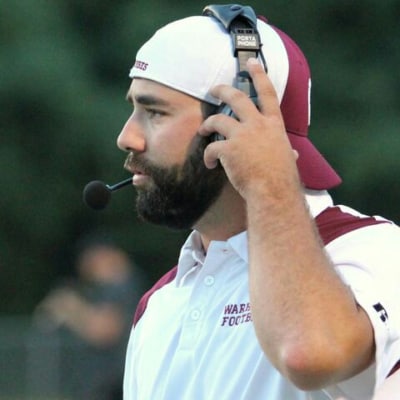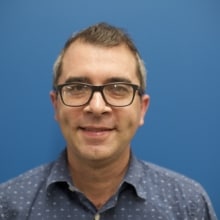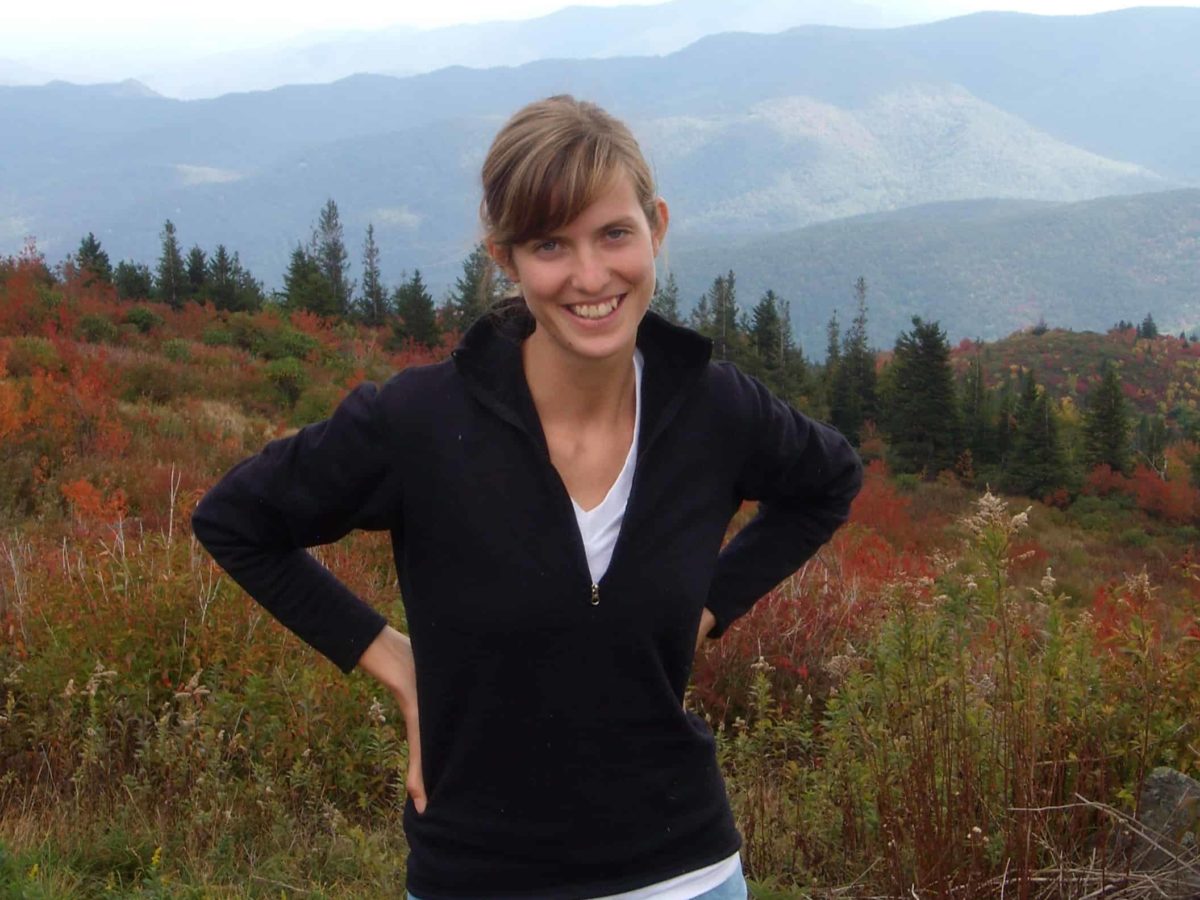
A lifelong North Carolina resident, Sallie Senseney has lived close to both the mountains and the sea. Born and raised (until fourth grade) on coastal N.C.’s Ocracoke Island, she spent the next decade or so in mountainous Celo in Yancey County, where both her parents continued their prior work as educators.
Senseney attended Yancey’s Mountain Heritage High School, which she came back to in 2010 to teach biology, and she has been there ever since. In the interim, she obtained a bachelors degree in biology and her teaching certificate from UNC-Chapel Hill, and in May of this year, she completed a masters in biology from Clemson University.
Along the way, Senseney has traveled to parts of Europe and Central and South America, but never to countries like India that seem half a world away.
“For me personally, I’m really interested in being immersed in a country that’s so different from ours and the ones I’ve visited before,” she says. “I’ve never visited a country that’s not either secular or predominantly Christian.”
Senseney expects the trip will help her learn more about how religion, science, and culture interact to shape young people’s education, a question she has pondered a lot. “I really like teaching ecology and environmental issues, and evolution and genetics,” she says. “Those are kind of tricky things to teach sometimes, because my kids are coming from backgrounds where that’s not necessarily accepted, but it’s still pretty cool to try to teach it to them.”
She expects other educational takeaways. “As a teacher, it seems like India has two things going on: One is excellent technology and innovation, but the other is extreme poverty and a situation where the opportunity is not spread out very evenly. That will be interesting to learn about, as a teacher.”
And then there is the importance of sharing what she finds. “One thing that’s valuable to my students is just being around people who have seen other things outside of Yancey County,” Senseney says. “My students are very interested in the experiences I’ve had elsewhere — even if was just my time in Chapel Hill, which is very different from Yancey County, even though it’s in North Carolina,” she said. “And I think part of our role as teachers is to help expose our students to the ways other people think and live, everywhere, so we can be kind of a window to the world for them.”
What’s more, she says, “A lot of the issues I teach about, especially in ecology, where we talk about population growth and how that impacts the environment, and how cultural factors impact access to health care and family planning — they’re really interested in how all that ties in, and I think India is a good case study for all that.”
Recommended reading
